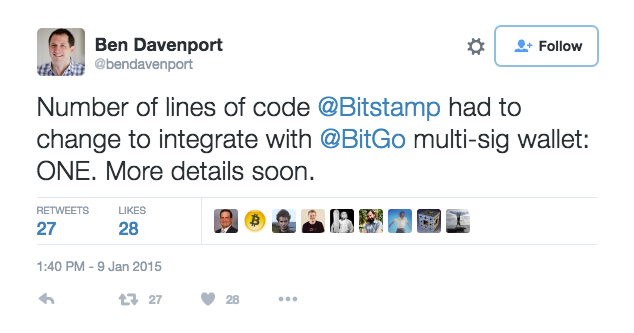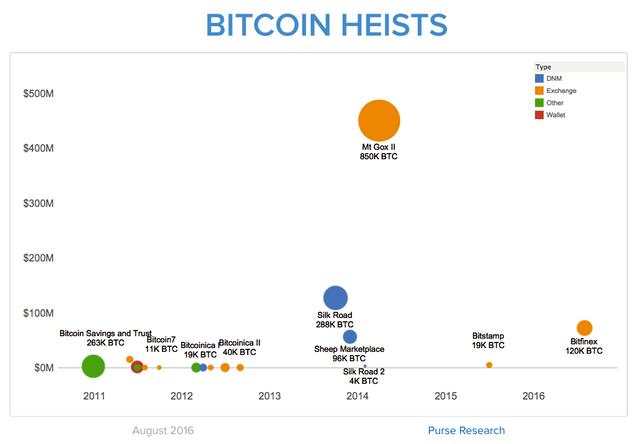Building a Resilient Ecosystem
On August 4, 2016, the news ripped through the bitcoin community like an earthquake. The Bitcoin market suddenly tanked, destroying nearly $2 billion in value. Mainstream media journalists wrote off Bitcoin once again after yet another critical service of our fledgling ecosystem was taken down by hackers.
As an industry, this isn't the first time we've had to swallow our losses and push forward (and quite possibly not the last). But, what have we done collectively to prevent such catastrophes since the last one occurred?
What did we learn from past mistakes?
The community blamed the Mt. Gox collapse in 2014, as well as previous failures, on the immaturity of the ecosystem. The community focused on the fact that Mark Karpeles was not a professional with no venture capitalists or seasoned executives on board.
MtGox had to die for Bitcoin to thrive. Its former role from early Bitcoin days has been supplanted by better, stronger entities.
@pmarca
In early 2015, Bitstamp was hacked losing $5 million. Having raised $10 million in venture capital, the arguments used to justify previous hacks no longer held water. Industry leaders pushed for a new narrative: multi-sig and insurance would help prevent future hacks. In the ensuing months, companies rushed to adopt BitGo's “insured” wallet solution.
In the wake of a market catastrophe, the Bitcoin industry concentrated risk around one privatized security model similar to the way banks consolidated after “Too Big to Fail.” Instead of collaborating on open source software to improve security, companies hastily decided to adopt a centralized security model in fear of becoming the next company hacked. As a result, the ecosystem put all its eggs into one patented basket.
Time for a new approach?
There are no silver bullets to prevent the next hack. While companies like ShapeShift have reduced risk through design, custodial funds are unavoidable for a number of use cases. However, by outsourcing bitcoin infrastructure, businesses become dependent on third parties for the safety of customer funds. Companies also miss out on opportunities to accrue knowledge necessary to optimize product, and instead, aggregate ecosystem risk.
What's Next?
As a nascent industry, the community must work together. Collectively relying on centralized dependencies was a step in the wrong direction. By uniting our engineering efforts and expertise, we can work together to build resiliency by collaborating on open source infrastructure.
At Purse, we will begin by open sourcing our wallet infrastructure to accelerate collaboration in the bitcoin industry. Let's build a safer, brighter future for bitcoin together.

Disclaimer: I am just a bot trying to be helpful.
Congratulations @purse! You have received a personal award!
Click on the badge to view your own Board of Honor on SteemitBoard.
For more information about this award, click here
Congratulations @purse! You received a personal award!
You can view your badges on your Steem Board and compare to others on the Steem Ranking
Vote for @Steemitboard as a witness to get one more award and increased upvotes!